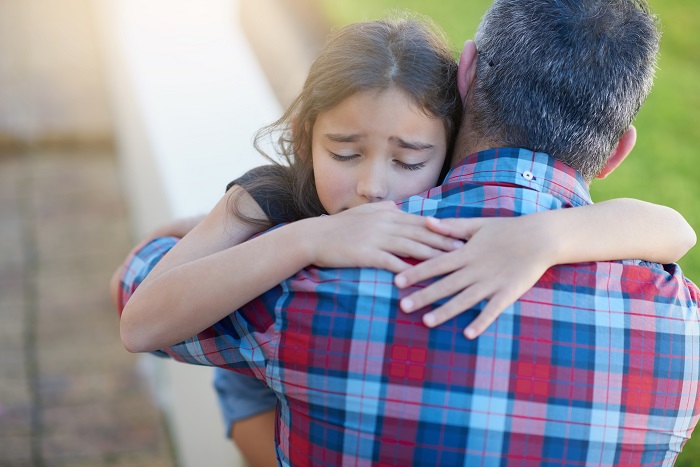 Divorce occurs when a marriage does not succeed. The end of a marriage can feel like a relief. It can also be extremely stressful. Even the partner who chooses to leave may feel a range of emotions. They may experience grief, guilt, anger, confusion, fear, shame, and anxiety. If children are involved, the stress of divorce may be more intense.
Divorce occurs when a marriage does not succeed. The end of a marriage can feel like a relief. It can also be extremely stressful. Even the partner who chooses to leave may feel a range of emotions. They may experience grief, guilt, anger, confusion, fear, shame, and anxiety. If children are involved, the stress of divorce may be more intense.
- Why Do People Get Divorced?
- Can Divorce Be Predicted?
- The Effects of Divorce
- Emotions of Divorce
- Divorce and Children
Why Do People Get Divorced?
Between 40 and 50% of married couples in the United States get a divorce. Partners may choose divorce for many reasons. Couples often cite multiple reasons rather than one single problem. The following reasons are some of the most common for divorce:
- Lack of commitment. This includes marrying too young or marrying the wrong person.
- An affair
- Communication issues or a tendency to bicker
- Unfair division of labor in marriage
- Insufficient preparation for the challenges of married life
- Financial problems and arguments about money
Can Divorce Be Predicted?
It is impossible to predict with 100% accuracy if a marriage will end. But there are some signs that indicate it might. If present, these signs could mean divorce is more likely. Psychologist John Gottman has spent much time researching why partnerships fail. He theorizes it is not so much specific problems that lead to divorce. He found instead that divorce often stems from issues with how partners relate. Through his research, Gottman has identified some predictors for divorce. These are called the “four horsemen” of divorce:
- Criticism, especially when not outweighed by frequent positive statements
- Contempt and lack of respect. Gottman argues this is the single best predictor of divorce. He believes it can be seen even early on in a relationship.
- Defensiveness. People who cannot take responsibility for a problem cannot fix it. They may not be able to display empathy for their spouse.
- Stonewalling. This is the avoidance of interaction and discussion of problems. Stonewalling can make it impossible to resolve an argument.
If the one or more of the four horsemen is present in your relationship, it is not too late. Recognizing that a problem exists can be a first step toward solving it. But if a couple ignores these signs, they may be moving closer to a divorce.
The Effects of Divorce
Divorce is life-changing in many ways. It is helpful to monitor your reactions to the changes of divorce. This self-awareness can help you cope with the many adjustments that follow.
Some common changes divorce brings include:
- Finances. Financial changes occur when one household becomes two. Some people are used to being supported financially by their partner. Divorce may change this. The sudden budget changes that come with divorce may cause worry, stress, or anxiety.
- Lifestyle. Single and married life are different. Newly divorced people may feel lonely or go through shock after separating. These feelings can occur even if the person wanted a divorce. Self-care and self-compassion are key in this time of change.
- Relationships. Bonds with children and friendships may be altered by divorce. Relationships with mutual friends may be different. Your children may no longer live with you all the time. This change may cause feelings of loss or grief. Keeping a strong support network during this time can help.
Emotions of Divorce
Divorce recovery is a process. Adjusting to changes that occur as a result of a divorce can take time. Part of the process is recognizing that changes will be certain. Newly divorced people will come to realized their lives will be affected. The lives of those around them may also change in profound ways.
Many feelings occur as a result of divorce. A few of them include:
- Worry about finances, employment, or housing
- Sadness over losing friends or family members as a result of the divorce
- Guilt and emotional overwhelm. Thoughts about how divorce could affect any children may cause these feelings.
- Grief over losing a familiar lifestyle or life partner. This may hit hard if one partner did not want to be divorced.
- Stress from going through the legal process or divorce, especially if children are involved. Stress can also occur as family members adapt to new routines and develop new support networks.
These issues can often be worked through during the recovery process. Therapy is one way to begin recovering from a divorce.
Divorce and Children
 Divorce may be complicated if you have children. Children are often impacted by a parent’s divorce. These effects may cause mental health issues. Divorce may increase chances of anxiety, depression, self-harm, and suicide in children and teens. You can help avoid these issues by watching your child’s reactions.
Divorce may be complicated if you have children. Children are often impacted by a parent’s divorce. These effects may cause mental health issues. Divorce may increase chances of anxiety, depression, self-harm, and suicide in children and teens. You can help avoid these issues by watching your child’s reactions.
Some signs a child is struggling with a parent’s divorce include:
- Acting out in school or at home
- Shutting down or withdrawing
- Changes in usual behavior
- Increased rule-breaking or obedience
- Angry or irritable mood
- Signs of self-harm
- Displaying much more or much less emotion than usual
Once you notice this behavior, you can address it. Some ways to address your child’s reaction to your divorce include:
- Asking open-ended questions about how they feel
- Answering any questions they have in an age-appropriate way
- Making sure they feel safe and secure throughout the process
- Letting them know that no matter what happens, you will be there for them
If your child is having trouble with your divorce, a child or family therapist could help. They can provide a safe setting for your child to share their thoughts, feelings, and worries.
References:
- Amato, P. R., & Previti, D. (2003). People's reasons for divorcing: Gender, social class, the life course, and adjustment. Journal of Family Issues, 24(5), 602-626. doi: 10.1177/0192513X03254507
- Gottman, J. M. & Silver, N. (1999). The seven principles for making marriage work. New York, NY: Crown.
- Helping children cope with divorce. (n.d.). Association for Behavioral and Cognitive Therapies. Retrieved from http://www.abct.org/Information/?m=mInformation&fa=fs_DIVORCE
- Warren, S. (2018, May 8). 10 most common reasons for divorce. Marriage.com. Retrieved from https://www.marriage.com/advice/divorce/10-most-common-reasons-for-divorce

